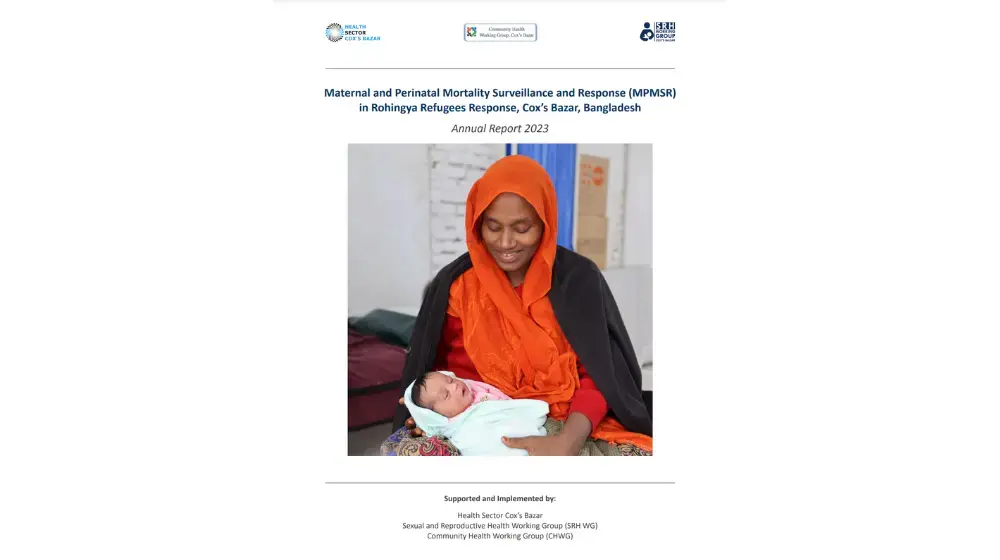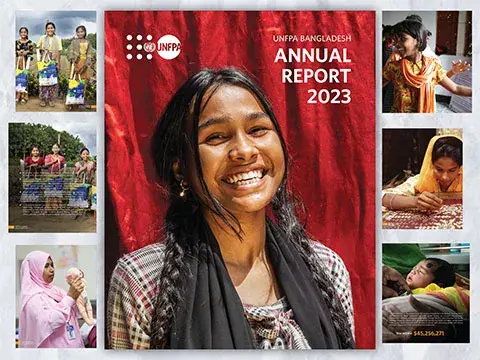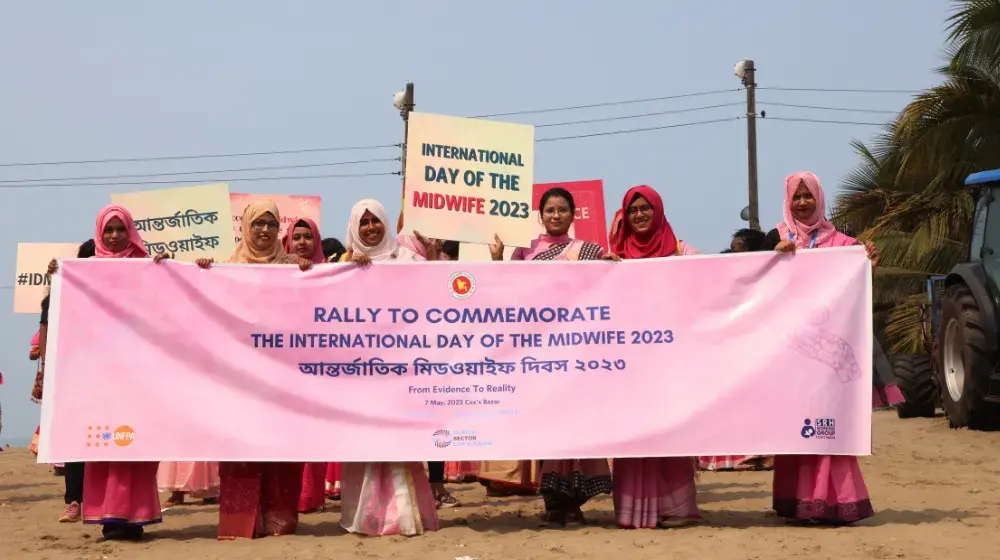After being featured on countless posters promoting tourism in Bangladesh for decades, the small island of St. Martin could seem like the most idyllic setting one could ever wish to live in. Each year, thousands of tourists visiting the world famous beaches of Cox’s Bazar make a day trip to this island to marvel its serene sea views and unique biodiversity.
However, for the 9,000 residents who permanently inhabit the island, life is often far from ideal. For decades, St. Martin’s had no functioning medical facility as issues with providing power and drinking water to the living quarters of physicians and nurses resulted in medical professionals leaving the island. For the residents living on modest incomes made mostly through fishing, leaving the island for medical care was not always possible. The situation was particularly challenging for pregnant mothers hoping for a safe delivery.
“I was afraid to go the mainland for my delivery, because of the sea. For a pregnant woman, crossing the sea to reach a hospital is expensive, time-consuming and potentially dangerous,” explains Nur Kayda, a 20-year old living on the island.
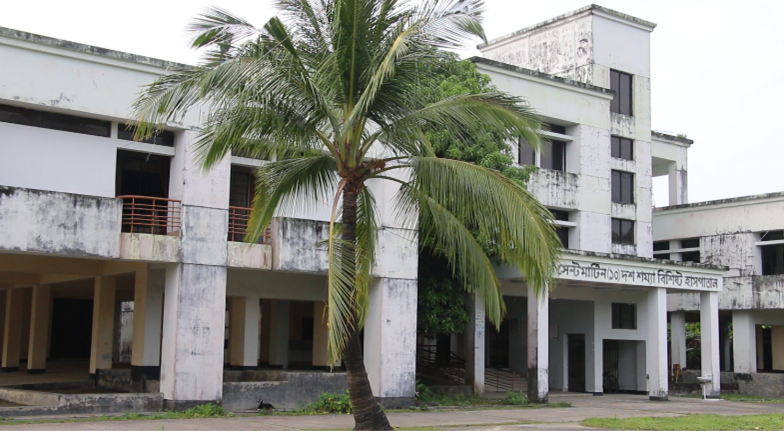
Due to issues with ensuring a steady supply of power and drinking water, the only hospital on St. Martin's island stood stranded for years. (Photo: UNFPA Bangladesh/Mohammad Ashraf Bhuiyan)
After USAID supported the Government in restoring reliable power and water supply on the island, St. Martin’s luckily now has a 10 bed hospital, where local residents can access many essential health services. However, until recently, the maternal health services provided by the facility remained limited. “One issue was that the facility had no trained people for safe delivery,” mentions Nur.
To address this severe gap, UNFPA partnered with Global Affairs Canada and Save the Children Bangladesh this year to deploy two midwives to the island hospital. The midwives were recruited as part of UNFPA’s "Strengthening Sexual and Reproductive Health and Rights and Gender-Based Violence Prevention Services in Cox’s Bazar” project, which is funded by the World Bank through the Government of Bangladesh. The two deployed midwives, Robina and Shoma, began to immediately provide antenatal care to pregnant women in the island.
On 2 November 2021, the midwive became local celebreties on St. Martin’s, when Nur had the honour of becoming the first woman to have their delivery performed by Robina and Shoma. After experiencing labour pains in the evening of 1 November, Nur rushed to the hospital, where she stayed the night. Next day, she delivered a healthy baby girl with no complications and news about the heroic midwives spread across town.
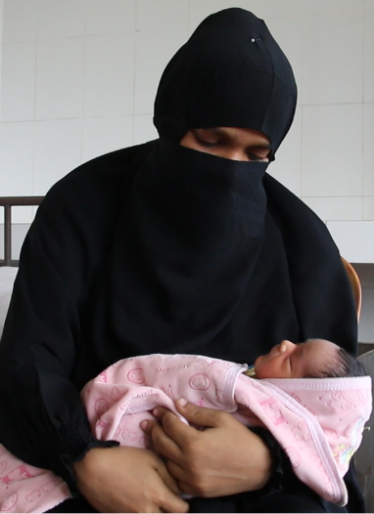
With the aid of the UNFPA-supported midwives, Nur gave birth to a healthy baby girl this November. (Photo: UNFPA Bangladesh, Mohammad Ashraf Bhuiyan)
“The midwives checked my condition, advised me, and provided me emotional support. With their help, I was able to give birth to my daughter in a safe way. They have come as a sign of hope for all women on our island!” exclaims Nur.


